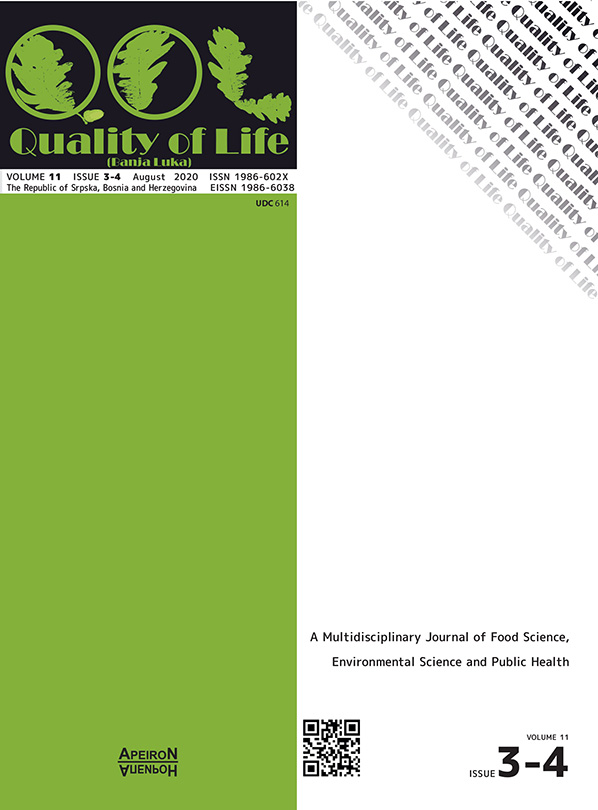Importance of Public Health Control of Metals as Chemical Risks in Dietary Supplements
DOI:
https://doi.org/10.7251/QOL2003094MAbstract
Popularity and use of dietary supplements are constantly growing. Dietary supplements are food products intended to supplement the usual diet and are concentrated source of nutrients or other substances with nutritional or physiological effecst. The purpose of the Paper is to determine frequency of presence of cadmium, lead and mercury metals in dietary supplements based on protein and amino acids that were analyzed during 2018 and 2019 at the Public Health Institute of Republic of Srpska in Banja Luka. Content of metal was determined by the Atomic Absorption Spectrophotometry method. No health defective samples were identified by public health control, but due to modern frequent use of dietary supplements in various population groups (children, adolescents, pregnant women, athletes, etc.), the aim of the Paper is to raise people’s awareness of the risks, such as heavy metals and artificial sweeteners, colors, prohormones and other chemical risks from dietary supplements since they may be associated with chronic health risks.
